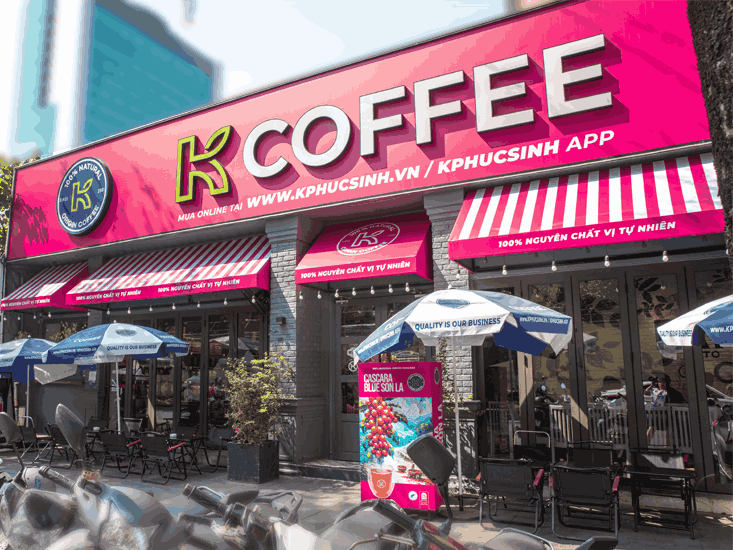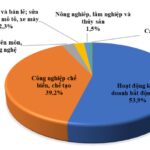Phúc Sinh Corporation Secures $25 Million Investment from &Green Fund
Phuc Sinh Corporation, a prominent Vietnamese company, has secured a significant investment of up to $25 million from the &Green Fund based in the Netherlands. This investment marks &Green’s first venture into a Vietnamese enterprise, reflecting the fund’s confidence in the company’s growth potential.
Phuc Sinh began its journey as a pepper exporter in 2001 and has since become a major player in the global pepper industry, capturing 8% of the world’s export market share. Now, the company is setting its sights on a new venture in the coffee industry, recognizing the untapped potential within this sector.
Earlier this year, Phuc Sinh received funding from a European fund, resulting in a valuation of $320 million. With this new investment from &Green, Phuc Sinh’s chairman, Mr. Phan Minh Thong, emphasizes the company’s commitment to sustainable development in both the pepper and coffee industries.
Mr. Thong also revealed that another investment deal is expected to be finalized in September, with partners showing strong support for the group’s sustainable agriculture model. Amid a scarce investment landscape, it is notable that a Vietnamese agricultural enterprise has successfully secured multiple investment deals.
Phuc Sinh’s 11-Year Journey and the Undervaluing of Vietnamese Agricultural Enterprises
According to Mr. Thong, Phuc Sinh has been approached by numerous investors and “big players” since 2013, but they chose to “keep themselves” until now. The main reason for this was the low valuation offered by investment funds, primarily focused on consumer industries at the time. Additionally, the imposed KPIs and the pressure to maximize short-term profits were misaligned with Phuc Sinh’s long-term vision.
“I often wondered why Phuc Sinh was undervalued when we were exporting to over 102 countries. I also questioned why agricultural enterprises in Vietnam were valued far below those in Indonesia, Thailand, and Malaysia,” Mr. Thong shared. This motivated Phuc Sinh to refine its production model and strive for a more accurate valuation.
Phuc Sinh was also an early adopter of ESG (environmental, social, and governance) practices, driven by the demands of their clients. Years ago, the company’s customers requested that 50% of their purchases comply with ESG standards. To meet this requirement, Phuc Sinh had to invest significantly in ESG, even when the concept was still nascent in Vietnam.
Mr. Thong recalls spending $5 million (equivalent to 3-4 plots of land in a prime location in Ho Chi Minh City) on ESG in 2010. The company also spent $800,000 on regional ESG experts but faced complete failure by 2012. The main challenge was managing a large number of farming households, which proved to be overwhelming.
The High Cost of Sustainable Development
Based on his experience, Mr. Thong emphasizes the importance of understanding the culture and practices of farmers before attempting to implement ESG. Phuc Sinh took the time to study the soil, regions, culture, and farming methods of different areas. They also established a dedicated ESG team, which eventually led to the company becoming the first spice enterprise in Vietnam to obtain the Rainforest Alliance certification in 2014.
“Developing ESG is not cheap, and it requires perseverance from the business,” Mr. Thong advises. He hopes that Phuc Sinh’s deal with the Dutch partner will inspire other companies seeking foreign investment. He also shared that Phuc Sinh, like many startups, has faced numerous failures along the way. Looking ahead, Mr. Thong aspires to take the company public within the next four years, targeting a revenue of $510 million.
“To partner with foreign funds, businesses need three factors: authenticity, transparency, and sustainability. Phuc Sinh still has a lot to do in the next phase, including financial restructuring… because everything has its price. But I believe this is good for the company’s future,” said the representative of Phuc Sinh.
Entering the Coffee Chain Market with K Coffee

K Coffee chain generated VND 100 billion in revenue from 50 stores.
In addition to its export business, Phuc Sinh returned to the domestic market in 2016, supplying coffee to its partners and selling to local consumers through supermarkets and its K Coffee chain.
“I noticed that Vietnamese enterprises tend to focus solely on exports and neglect the domestic market. When I went to countries like England and the US, they said that people in Vietnam don’t drink coffee. I thought they were joking at first, but they kept saying it, so I decided to sell quality coffee products in the domestic market,” Mr. Thong explained.
Regarding the current state of the Vietnamese coffee chain market, Mr. Thong believes there is still room for growth, with many entrants and exits. Unfortunately, many chains are struggling with losses, while newcomers, despite their enthusiasm and quality products, are not aligning with market trends. These new chains lack a connection to farming and are overly focused on product innovation, which contradicts global and local market trends.
Phuc Sinh, on the other hand, sources its coffee from its own farms (about 5% of its output). With the support of its parent company, partners, and access to capital, Phuc Sinh FMCG aims to become the number one player in the high-quality product segment within the next 3 to 5 years.


















